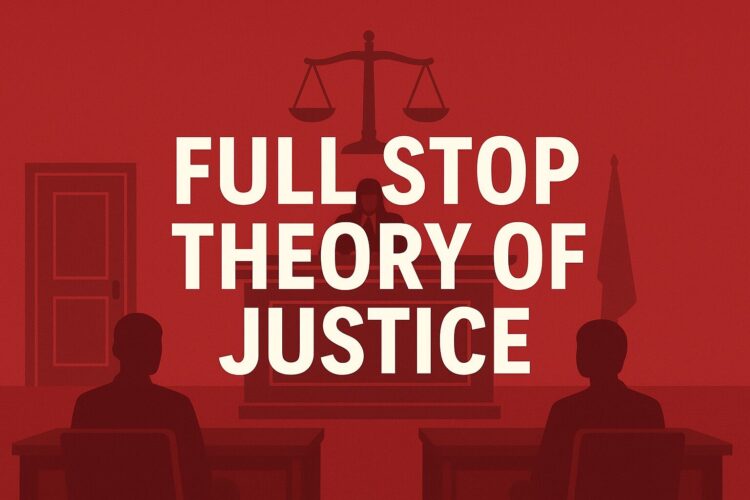The Full Stop Theory of Justice
All family disputes, property disputes, and compoundable criminal cases pending before any court should be resolved in the same court itself, provided that the utilization of judicial reasoning is not required. In minor matters, mere punishment does not end the underlying dispute; instead, the conflict continues in another form and remains unresolved.
The Full Stop Theory of Justice emphasizes four key points:
- Identification of Litigants – Distinguish between those who genuinely seek justice and those who misuse judicial processes for personal gain. Immediate restrictions should be placed on the latter category of cases.
- Exploring the Root Cause of Crime – If the litigant is not a professional criminal and the offence is compoundable, the solution should not lie in judicial punishment but in addressing and eliminating the root cause of the dispute within the same court.
- Preliminary Screening – An institution should be established to assess whether a case truly requires judicial intervention. If not, both parties should undergo counselling, and the dispute should be settled at that stage. Only cases requiring judicial intervention should proceed to court.
- Full Stop Mechanism – Family disputes, property disputes, and compoundable criminal cases should be conclusively resolved at the preliminary court level itself. This will reduce the burden on the judiciary and ensure genuine justice.
This principle offers the most practical solution for reducing the burden on the judiciary and maintaining public trust in the justice system.
✍🏿 Dilip Kumar
Advocate












Discussion about this post